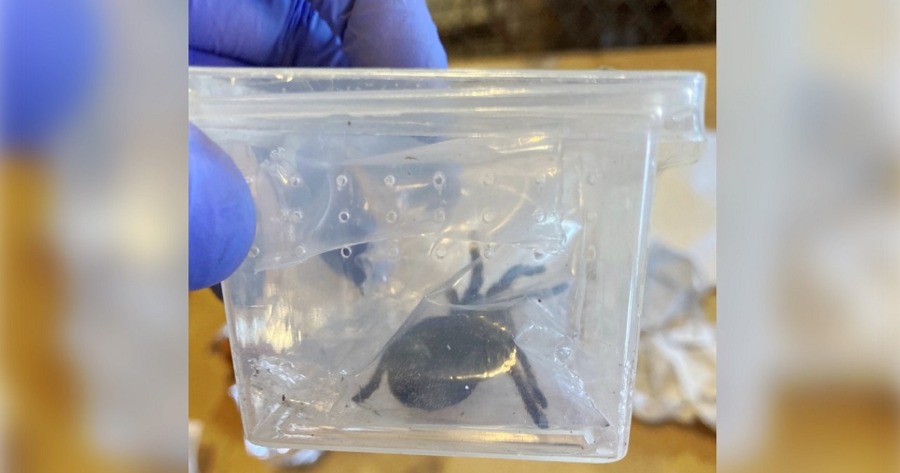CBSA Officers Thwart Smuggling Attempt: Two Live Tarantulas Discovered in Unusual Packages
- Kingston Bailey
- Trending
- Western Canada
- August 14, 2023

The Canada Border Services Agency (CBSA) safeguards Canada’s environment and biodiversity. In a recent incident highlighting the importance of stringent import regulations, CBSA officers at the Edmonton Commercial facility discovered two live tarantulas concealed in unlikely packages. The agency’s swift action prevented the potential spread of diseases and the introduction of foreign species and underscored the significance of proper procedures when transporting living creatures across borders.
On separate occasions, CBSA officers intercepted peculiar packages arriving at the Edmonton International Airport from Hong Kong. These packages, originating from the same shipper, raised suspicions due to irregularities. Upon closer inspection, the officers made startling discoveries – a male tarantula hidden within a plastic container on May 12, 2023, and a female spider concealed inside a children’s toy plane on June 1, 2023.
Recognizing the potential impact of imported species on Canada’s ecosystem, CBSA officers promptly engaged Environment and Climate Change Canada (ECCC) enforcement officials. The goal was to determine if the spiders belonged to species listed under the Convention on International Trade in Endangered Species of Wild Fauna and Flora (CITES). Subsequent examinations conducted by ECCC wildlife enforcement officers and their collaborative partners revealed that the tarantulas were identified as Phlogiellus xinping, a species native to Hong Kong and not subject to CITES regulations.
The incident serves as a reminder of regulation’s crucial role in the importation of living creatures. Canada enforces strict rules governing their importation to ensure the humane transport of animals and prevent potential threats to endangered and threatened species. The Wild Animal and Plant Protection and Regulation of International and Interprovincial Trade Act (WAPPRIITA) is the legislative framework for implementing CITES in the country. Any import or export of CITES-listed wildlife without proper permits may result in seizure, forfeiture, and potential legal consequences.
Canada’s commitment to humane transportation extends beyond exotic species, encompassing all living creatures, whether domestic or wild. Dogs, cats, exotics, or reptiles are entitled to safe and secure travel, whether by land, air, or sea. CBSA’s Regional Director General for the Prairie Region, Lisa Laurencelle-Peace, emphasized that the agency’s collaboration with enforcement partners is integral to curbing illegal wildlife trade and ensuring the safety of Canada’s borders. Through diligent efforts and partnerships, Canada continues to fortify its borders and protect the delicate balance of its environment.
Image source CBSA








